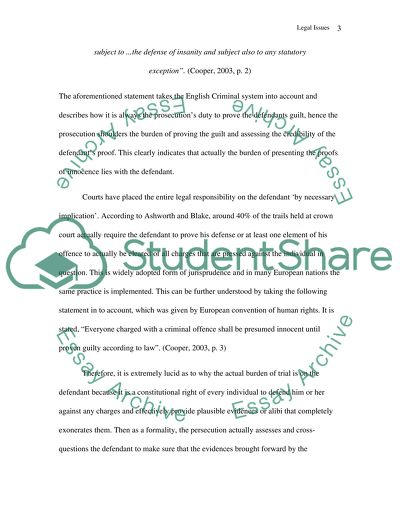Cite this document
(“The imposition of the legal burden on the prosecution is a formality Essay”, n.d.)
Retrieved from https://studentshare.org/law/1422462-the-imposition-of-the-legal-burden-on-the-prosecution-is-a-formality
Retrieved from https://studentshare.org/law/1422462-the-imposition-of-the-legal-burden-on-the-prosecution-is-a-formality
(The Imposition of the Legal Burden on the Prosecution Is a Formality Essay)
https://studentshare.org/law/1422462-the-imposition-of-the-legal-burden-on-the-prosecution-is-a-formality.
https://studentshare.org/law/1422462-the-imposition-of-the-legal-burden-on-the-prosecution-is-a-formality.
“The Imposition of the Legal Burden on the Prosecution Is a Formality Essay”, n.d. https://studentshare.org/law/1422462-the-imposition-of-the-legal-burden-on-the-prosecution-is-a-formality.


